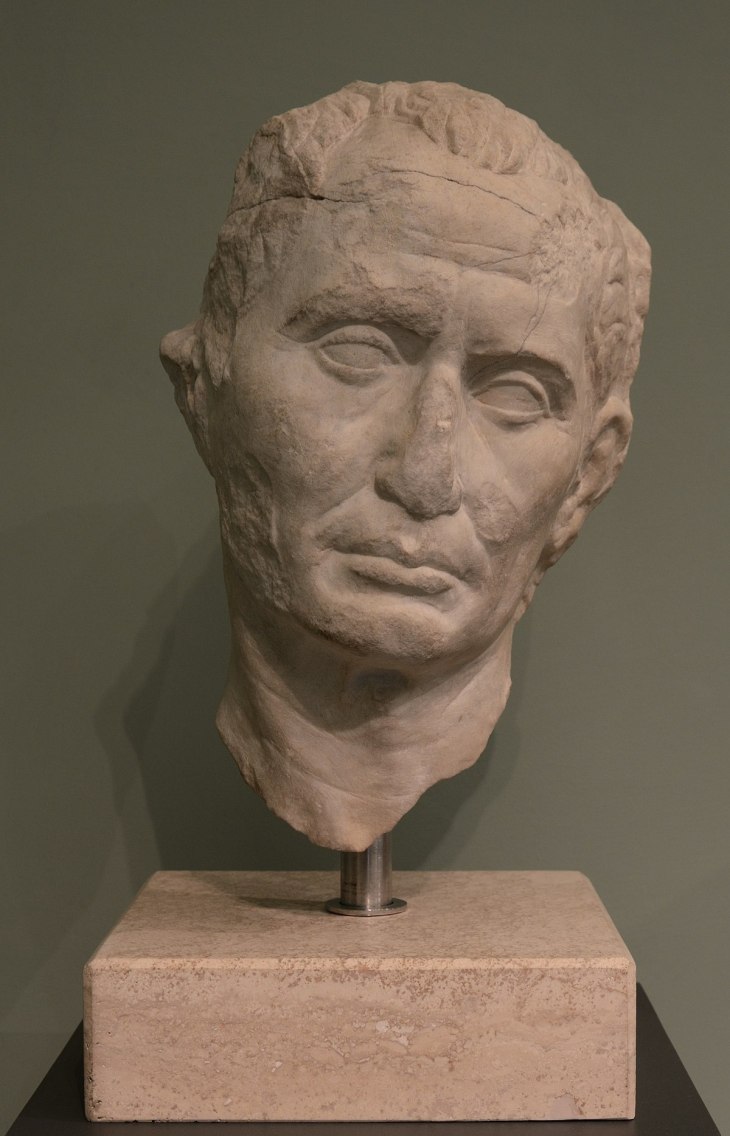

He rejected monarchical titles, and instead called himself Princeps Civitatis ("First Citizen"). It took several years for Augustus to develop the framework within which a formally republican state could be led under his sole rule. By law, Augustus held a collection of powers granted to him for life by the Senate, including supreme military command, and those of tribune and censor. In reality, however, he retained his autocratic power over the Republic.
#GAIUS JULIUS CAESAR AUGUSTUS DIVI FILUS FREE#
Lepidus was driven into exile and stripped of his position, and Antony committed suicide following his defeat at the Battle of Actium by Octavian in 31 BC.Īfter the demise of the Second Triumvirate, Augustus restored the outward façade of the free Republic, with governmental power vested in the Roman Senate, the executive magistrates, and the legislative assemblies. The Triumvirate was eventually torn apart by the competing ambitions of its members. Following their victory at the Battle of Philippi, the Triumvirate divided the Roman Republic among themselves and ruled as de facto dictators. Along with Mark Antony and Marcus Lepidus, he formed the Second Triumvirate to defeat the assassins of Caesar.

Afterwards, Octavius took the name Gaius Julius Caesar and was called Octavian ( Latin : Octavianus ). His maternal great-uncle Julius Caesar was assassinated in 44 BC, and Octavius was named in Caesar's will as his adopted son and heir. The Roman world was largely free from large-scale conflict for more than two centuries, despite continuous wars of imperial expansion on the Empire's frontiers and the year-long civil war known as the " Year of the Four Emperors " over the imperial succession.Īugustus was born Gaius Octavius into an old and wealthy equestrian branch of the plebeian gens Octavia. The reign of Augustus initiated an era of relative peace known as the Pax Romana. His status as the founder of the Roman Principate has consolidated an enduring legacy as one of the most effective and controversial leaders in human history. He was the first ruler of the Julio-Claudian dynasty. Īugustus ( Imperator Caesar divi filius Augustus 23 September 63 BC – 19 August AD 14) was the first Roman emperor, reigning from 27 BC until his death in AD 14.

Since Augustus himself (the title Augustus was officially conferred on Octavian by the Senate in 27 BC) and some other Roman emperors were deified after death, the title Divi Filius was also applied to some of Augustus' successors, notably Tiberius, Nero, and Domitian.A bust of Augustus, wearing the Civic Crown. The title was for him "a useful propaganda tool", and was displayed on the coins that he issued. Octavian used the title divi filius to advance his political position, finally overcoming all rivals for power within the Roman state. The fuller form, divi Iuli filius ("son of the divine Julians"), was also used. He was therefore referred to as Divus Iulius ("the divine Julius"), and his adopted son Octavian styled himself Divi filius ("son of the deified one, son of the god"). On 1 January 42 BC, nearly two years after the assassination of Julius Caesar on 15 March 44 BC, but before the final victory of the Second Triumvirate over the conspirators who had taken his life, the Roman Senate recognised Caesar as a divinity.


 0 kommentar(er)
0 kommentar(er)
